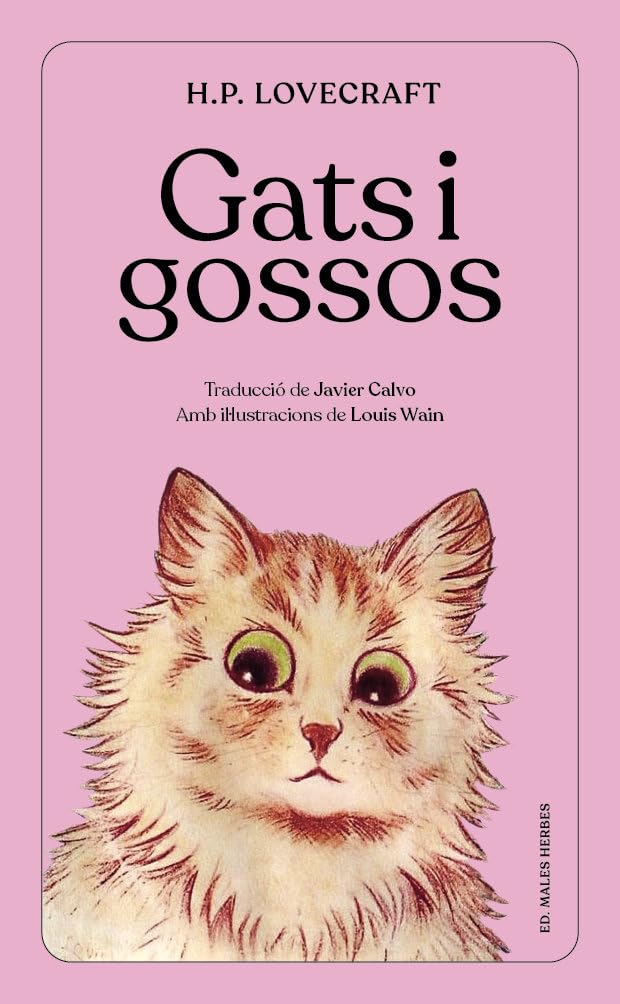
La rivalitat entre gats i gossos és històrica, proverbial, i el fet que també es pugui traslladar als seus amos respon, segons Lovecraft, a dues maneres antagòniques de veure el món i entendre la vida. Els amos de gossos són gent superficial i servil, com les seves mascotes, mentre que els amants dels gats són ànimes poètiques, persones de tarannà filosòfic, amb un sentit estètic exquisit i una sensibilitat excepcional. En aquest text inesperat, Lovecraft no estalvia afirmacions rotundes ni opinions polèmiques, entonant tot un cant d’amor als felins domèstics que també és un atac ferotge als amants del gènere caní. «Ens declarem amos d’un gos; però qui s’atreveix a considerar-se amo d’un gat? El gos el posseïm; està amb nosaltres en qualitat d’esclau i inferior perquè volem que així sigui. En canvi, un gat el tenim a casa; guarneix la nostra llar en qualitat de convidat, d’inquilí en les mateixes condicions que nosaltres, d’igual, perquè és ell qui vol ser-hi.»
Author

Howard Phillips Lovecraft, of Providence, Rhode Island, was an American author of horror, fantasy and science fiction. Lovecraft's major inspiration and invention was cosmic horror: life is incomprehensible to human minds and the universe is fundamentally alien. Those who genuinely reason, like his protagonists, gamble with sanity. Lovecraft has developed a cult following for his Cthulhu Mythos, a series of loosely interconnected fictions featuring a pantheon of human-nullifying entities, as well as the Necronomicon, a fictional grimoire of magical rites and forbidden lore. His works were deeply pessimistic and cynical, challenging the values of the Enlightenment, Romanticism and Christianity. Lovecraft's protagonists usually achieve the mirror-opposite of traditional gnosis and mysticism by momentarily glimpsing the horror of ultimate reality. Although Lovecraft's readership was limited during his life, his reputation has grown over the decades. He is now commonly regarded as one of the most influential horror writers of the 20th Century, exerting widespread and indirect influence, and frequently compared to Edgar Allan Poe. — Wikipedia